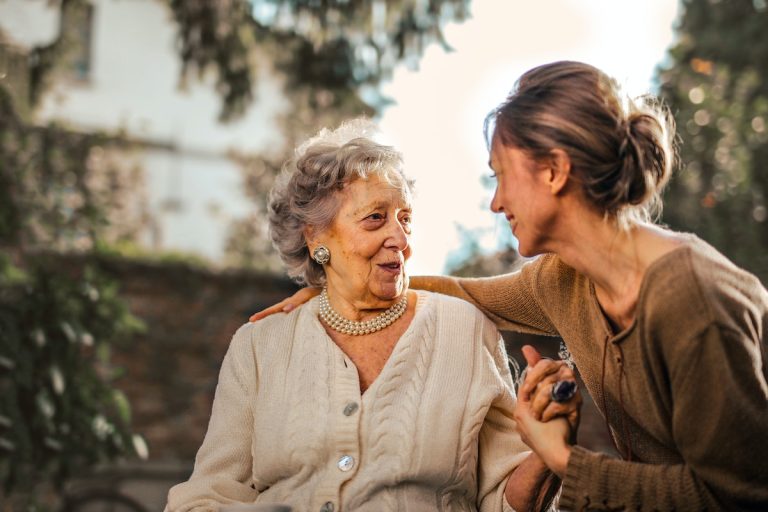Caregivers are some of the most selfless and hardworking people in the world. They provide care for their loved ones day in and day out, often without any support themselves. Many caregivers would put their patient’s health and safety first, often taking themselves for granted.
If you’re a caregiver, know that you’re not alone. According to studies, at least 17.7 million people in the U.S. provide care for a sick or disabled family member. And while it’s a gratifying job, it can also be complicated and isolating.
Why Caregivers Should Consider Joining Support Groups and Activities
There are many reasons why caregivers should consider joining support groups and activities. For one, this enables caregivers to have a support system to rely on. Caregiving can be overwhelming and stressful, and it’s helpful to have people you can talk to who understand what you’re going through.
Support groups and activities can provide a much-needed sense of community and allow caregivers to connect with others who understand what they’re going through. Knowing that you’re not alone in your experiences can make a difference.
Support groups and activities can offer caregivers practical tips and advice on coping with caregiving challenges. They can also provide a much-needed outlet for stress relief and allow caregivers to take a break from their demanding responsibilities.
Joining support groups and activities can simply be a fun way to socialize and connect with others. Caregiving can be a very isolating experience, so it’s crucial to find ways to communicate with others and have some fun.
Lastly, caregivers have so many experiences and knowledge to offer. Caregivers can participate in clinical studies or offer their services as care consultants. Joining support groups and activities allows caregivers to share their valuable experiences, which, in turn, can help researchers develop new caregiving strategies and techniques. They can even provide insight into their patient’s condition and help researchers learn more about the disease or condition.
Types of Support Groups and Activities for Caregivers
There are many different types of support groups and activities available for caregivers. Here are some examples:
Support groups
There are many types of support groups available for caregivers. Some focus on specific diseases or conditions, while others provide general support. Many support groups meet online or in person, so you can choose the format that works best for you.

Suppose you are not sure which support group to join. In that case, you can ask your doctor or another health care professional for recommendations. You can also search online for caregiver support groups in your area.
For example, you are a caregiver for a patient with Alzheimer’s. You might want to join a support group specifically for caregivers of patients with Alzheimer’s disease. This type of support group can offer you practical tips and advice on dealing with caregiving challenges. It can also provide an outlet to share your experiences with others who understand what you’re going through.
Advocacy Group Partnerships
Caregivers can also join advocacy groups to support patients and their families. Advocacy groups work to improve the quality of care for patients and fight for the rights of caregivers. Many advocacy groups have partnerships with support groups, so you can get involved with both.
For example, you can join market research companies like Rare Patient Voice that have a partnership with patient support and advocacy groups. This partnership provides patient support groups with the resources and tools they need to be successful. In turn, patient support groups can provide valuable feedback about their needs and experiences to the advocacy group. By joining an advocacy group partnership, you can help make a difference for patients and their families.
Clinical Studies
Caregivers can also participate in clinical studies. Clinical studies help researchers develop new caregiving strategies and techniques. They can also provide insight into their patient’s condition and help researchers learn more about the disease or condition.
Are you interested in participating in a clinical study? You can ask your doctor or another health care professional for recommendations. You can also search online for clinical studies that are looking for caregivers.
Care Consultants
Caregivers can also offer their services as care consultants. Care consultants provide practical tips and advice to patients and their families about coping with the challenges of caregiving. They can also help patients find the resources they need to be successful.
If you are interested in becoming a care consultant, you can contact patient support groups or advocacy groups to see if they have any openings. You can also search online for care consultant positions.
Caregiving Courses or Programs
Caregivers can also take caregiving courses or programs. These courses or programs can give caregivers the skills and knowledge they need to succeed. They can also offer insight into the challenges of caregiving and how to deal with them.
If you want to take a caregiving course or program, you can ask your doctor or another healthcare professional for recommendations. You can also search online for caregiving courses or programs in your area.
Caregiving can be a rewarding experience, but it can also be challenging. There are many ways to get support as a caregiver. You can join support groups, advocacy groups, or clinical studies. You can also offer your services as a care consultant or take caregiving courses or programs. By getting involved in these activities, you can make a difference in the lives of patients and their families while getting the support you need to stay sane and succeed.










